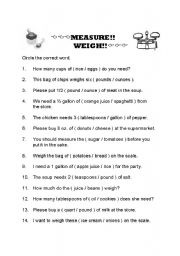
|
Measure! Weigh!
After practicing count and non-count nouns and containers, and vocabulary words "weigh" and "measure", students test their understanding of these concepts.
Level: intermediate
Age: 12-17
Type: worksheet
Downloads: 2
|
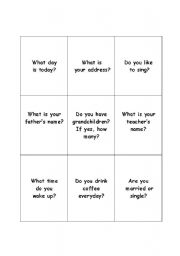
|
Beginning Conversation Cards
Designed for adult ESL students. Cards can be copied on card stock, cut apart, and used for group conversation or mingling.
Level: elementary
Age: 14-17
Type: activity-card
Downloads: 12
|
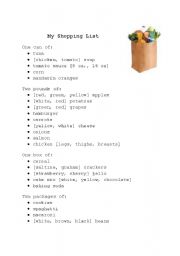
|
Shopping List
(This is a second attempt to upload this document; first attempt failed.) Students work individually first by circling items of food they need at the store. When finished, students work with a partner asking and answering questions: EX: Do you need tomatoes? Yes, I do. How many tomatoes do you need? I need...
Level: intermediate
Age: 14-17
Type: activity-card
Downloads: 5
|
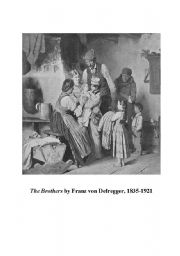
|
Reading Activity - Famous Painter Franz von DeFregger
Students read about artist Franz von DeFregger after studying his painting "The Brothers". Students then answer and discuss the painting. Created for adult ESL intermediate level students. (3 pages)
Level: intermediate
Age: 12-17
Type: reading
Downloads: 5
|
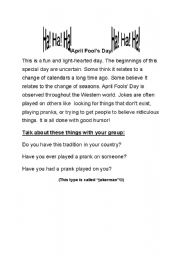
|
April Fools Conversation Activity
Students read a brief description of April Fools Day, then discuss in small groups three questions which follow the reading.
Level: intermediate
Age: 12-17
Type: others
Downloads: 3
|
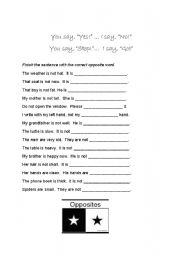
|
Opposites Worksheet
Black and white worksheet for reinforcement of already learned opposite vocabulary. Answers are not provided for students. I use after students practice with flash cards using opposite words used on the worksheet.
Level: elementary
Age: 13-17
Type: worksheet
Downloads: 1
|
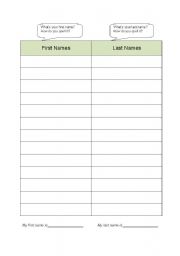
|
first / last name mixer
Created for a beginning low adult class, but could be used with younger students. Use at the beginning of class for students to learn each others names, and to practice asking "What is your first/last name? How do you spell that?"
Level: elementary
Age: 8-17
Type: activity-card
Downloads: 1
|
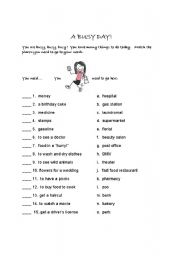
|
A Buzy Day. Places to go...
Students match needs/objects to the places where they can fulfill their needs. Created for beginning low adult ESL students.
Level: intermediate
Age: 14-17
Type: worksheet
Downloads: 6
|
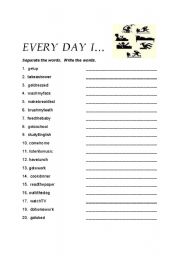
|
Every Day I...
Designed for adult beginning low ESL students, this worksheet can be used to reinforce previously learned vocabulary for daily routines. Phrases must first be separated, then the students write the phrases on the lines.
Level: intermediate
Age: 14-17
Type: worksheet
Downloads: 5
|
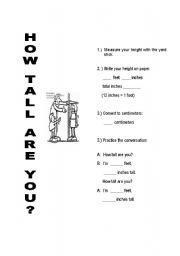
|
How tall are you?
Students practice measuring using U.S. standard measurement system (feet and inches), converting to metric system, and practicing conversation (How tall are you?)
Level: elementary
Age: 14-17
Type: activity-card
Downloads: 5
|